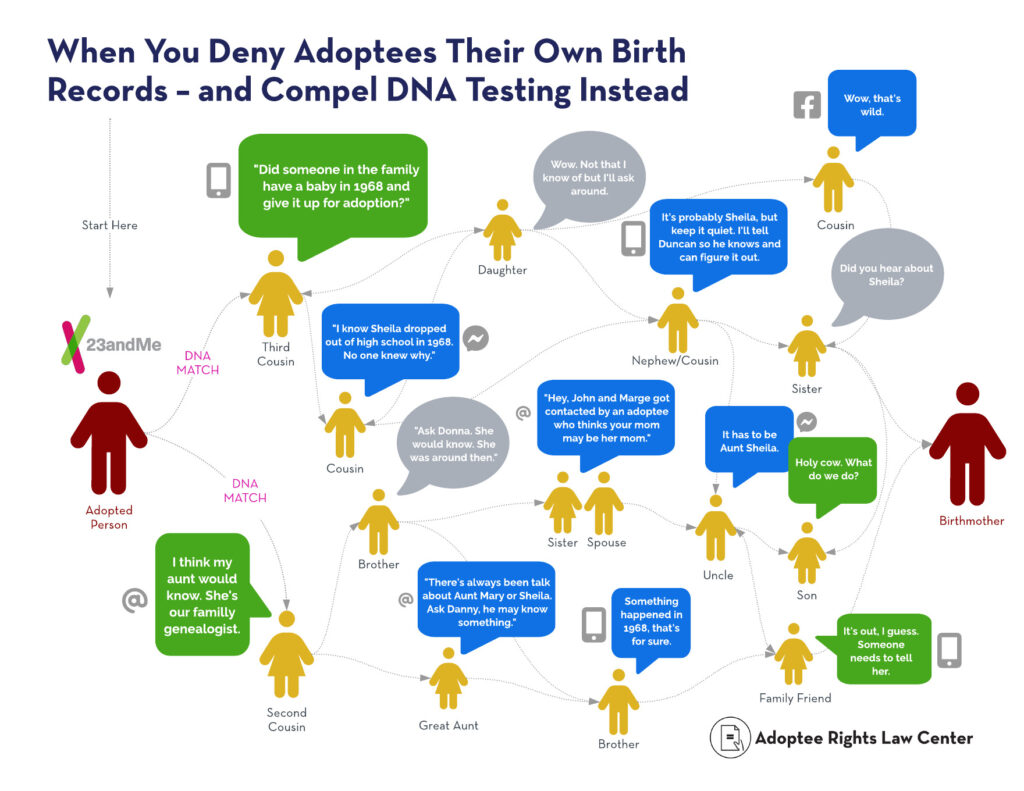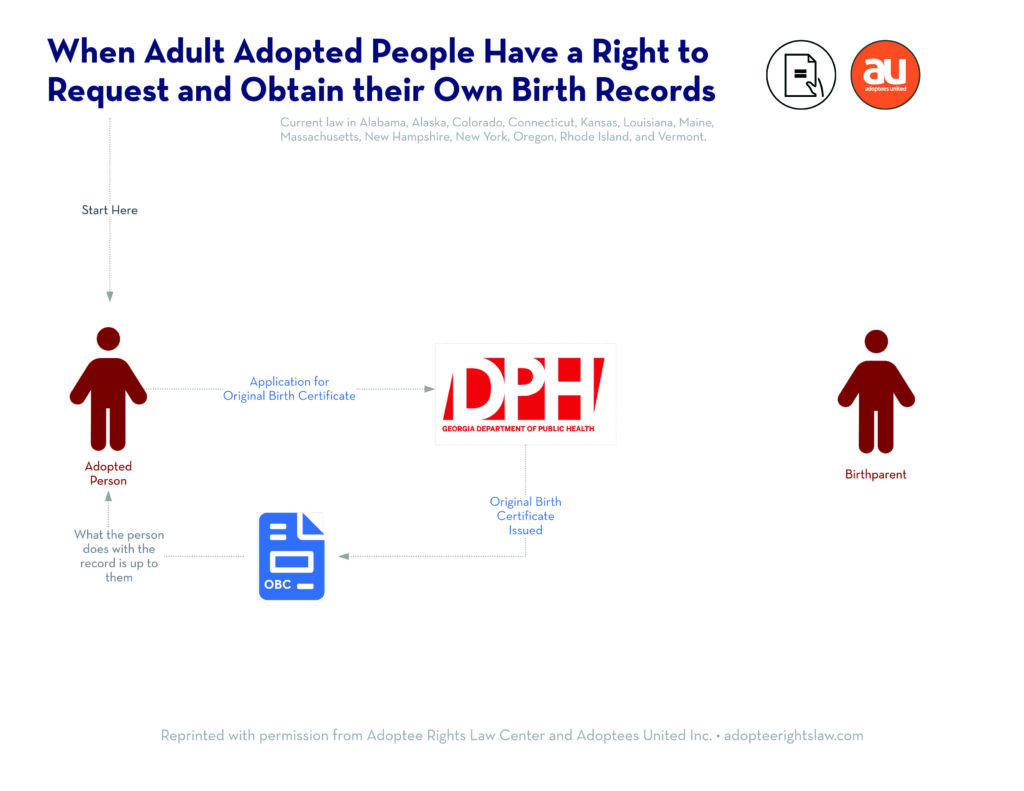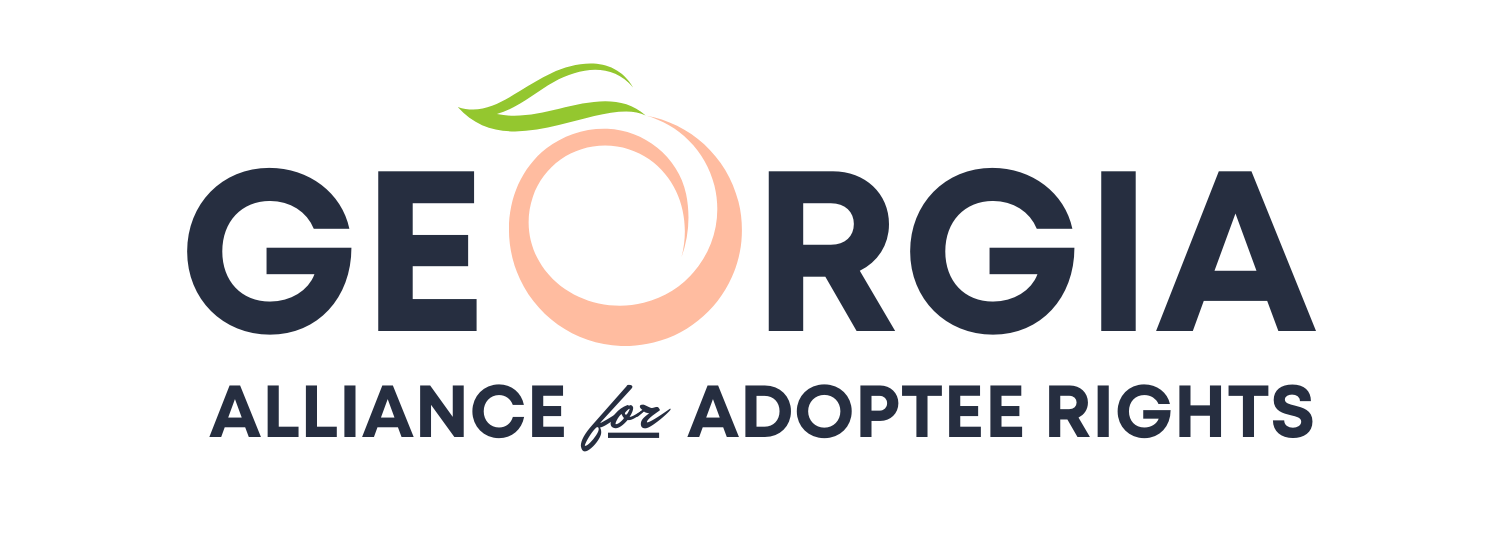DNA Testing vs Birth Records: Which One Provides More Privacy?

For decades, adoptees have been denied the right to their own birth records, and as a result, denied the opportunity to learn about their origins. Many false claims about birth parent privacy or anonymity have been made as reasons to continue to deny equal rights to adult adopted persons. However, in the last decade, the availability and affordability of consumer DNA testing through sites such as Ancestry and 23 and Me, has opened up new avenues for adoptees from states with sealed records to find out where they came from. But, using DNA testing in an attempt to discover one’s origins is not without issues, one of which being the lack of privacy.
If you have never taken a consumer DNA, let me explain how it works. First, you purchase a kit from one of the consumer DNA testing sites and upon receipt, spit into the tube, and mail it off to be tested. Then you wait. It usually takes the lab a few weeks to perform it’s analysis. Once complete, your results are uploaded to the site and you will be notified that your results are available! At that point, you may be filled with excitement or anxiety as you click to link to find out what your DNA has to say, especially if you are an adoptee with so many unknowns.
Many people are aware that once they log in they will find out what percentage Colombian, or Irish, or Japanese they may be, but not everyone is aware that in addition to identifying your ethnicity mix, you are also matched with DNA relatives who have also taken a DNA test through that same company. (There are also platforms that allow DNA results from various companies to be compared, such as GEDMatch, if that is desired.) For most people, when they view their list of DNA matches, they will see some combination of 2nd-4th cousins listed. It is less common to log on and find that you’ve immediately been matched to a 1st cousin, sibling, or better yet… a parent! (Although this would be like hitting the jackpot for most adoptees.) Without being directly linked to a parent and having little to no knowledge of your origins, how do you use these DNA matches to find out where you belong in the family tree?
Well, you have to start shaking the branches and ringing the phone lines. You will need to contact some of your matches and hope you can get some of them to respond with helpful information. Even though some of them want to help they do not have the information you need, so they aren’t really sure where you belong. They may then begin to call their sister or aunt, or another cousin, or grandma asking about any information that they might have on a baby from the family that was placed for adoption. If that person doesn’t know either or has vague memories of something like this happening, they may call another cousin or uncle or brother. Before you know it, the whole family may be in on trying to discover where in the world you came from and who gave up a baby! This is obviously not a very private or personal way to attempt to learn your biological origins, but this is what is forced upon adoptees when states refuse to allow adoptees their own records.

If the concern for adoptees and biological parents is privacy, then allowing an adopted person the right to directly obtain their own birth record is the key. With this scenario, the only contact required is between the adopted person and the Georgia Department of Public Health (DPH).

Giving equal rights to adult adopted persons means more privacy, not less. It is that simple. Or as my kids would say, “Easy, peasy, lemon squeezy!”
